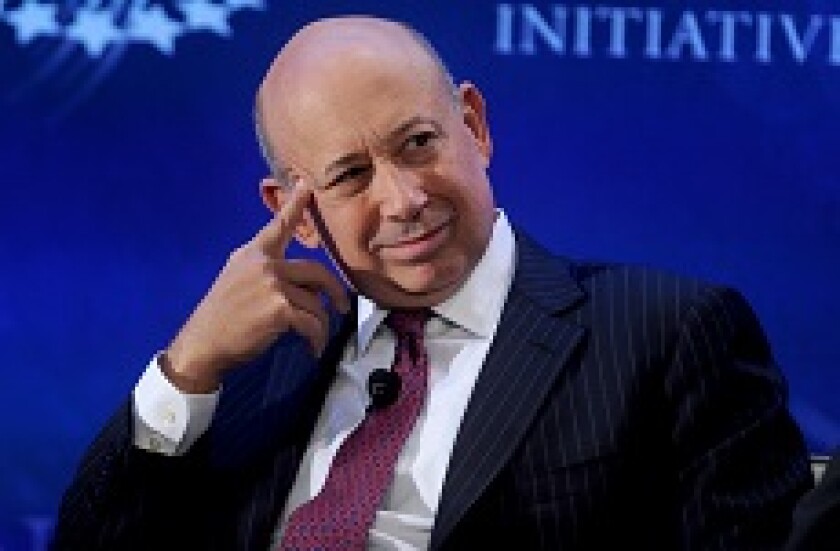Some of the media’s more hasty takes on the story took the opportunity to put the boot in for Goldman’s 40% year on year drop — particularly by comparison to Morgan Stanley’s 4% decline, an impressive result given the difficult comparison quarter. Rafferty Capital Markets analyst Dick Bove called for Lloyd Blankfein, the firm’s chief executive and perhaps Donald Trump’s most senior financial Twitter antagonist, to step down
Even GlobalCapital had to note the unusual mis-step from a bank that many often suspect is up to something secret, lucrative, and much more profitable than what the rest of the Street is engaged in.
The bank itself took a markedly different approach from how it handled its first quarter FICC disappointment (resolute stonewalling), engaging with the criticism and offering at least the outlines of a reason for the problems.
CFO Marty Chavez said that Goldman’s franchise “emphasises providing liquidity to active managers” and has a far larger commodities component than most of its rivals — both true statements, but the market latched on to the former far more than the latter.
That looks foolish. This, to be clear, is a bank that’s been number one in global M&A every year since 1998.
Part time DJ and Goldman president and COO David Solomon had said at an investor conference in May that the lack of a transaction services platform cut off certain corporate revenue streams into fixed income.
This is surely correct as far as it goes, but if the bank is capable of winning the biggest, most prestigious strategic mandates from the world’s top corporates, GlobalCapital has little doubt that it can capture a bit of hedging work should it wish to do so.
To put it another way, the chief executive that’s just entrusted Goldman with his or her career-defining merger is probably in a better position to hand out some ancillary work than the deputy treasury official who’s mandated a new payment processing bank.
There’s also no deep or intrinsic reason why a hedge fund-focused franchise ought to deliver structurally less revenue than a corporates-focused franchise.
Both client groups are affected by regulation, to the extent that they transact in wholesale financial markets, and both groups have cash on hand.
Institutional investment assets under management have been rising in the long term, and even the rise of “passive” investment hasn’t exactly starved the hedge fund industry — hedge fund assets under management hit a record high, over $3tr, at the end of last year. Some of the pre-crisis strategies, like credit derivatives arbitrage or CDO management, are out of favour and not coming back, but there’s no structural sign that active managers are ready to pack it all in for a simple life matching indices.
Last week, the mystery appeared to have been solved. Far from suffering from an excess of active management business, Goldman had simply been hit by a big trade going wrong in its natural gas business. The bad trade, which related to prices from shale formations in Ohio and Pennsylvania, may have cost the bank more than $100m — but large directional bets are a Goldman stock-in-trade at a time when few other firms will consider them.
The second quarter last year saw Goldman profit handsomely from another directional bet, this time in debt capital markets, as the firm bought a beaten up book of second charge mortgages from Barclays and turned them around in securitization format.
Rivals sneer that it is just a big hedge fund with a banking licence. But behind the sneers is a certain amount of jealousy aimed at an investment bank that’s still willing to put its money where its mouth is, take a market view, and move risk in serious size. Those are good qualities to be celebrated (and walled off firmly from taxpayers).
While some of the bank’s position taking will inevitably go wrong, betting against Goldman’s fixed income business a third quarter running seems a risk that shouldn’t pass any credit committee.

